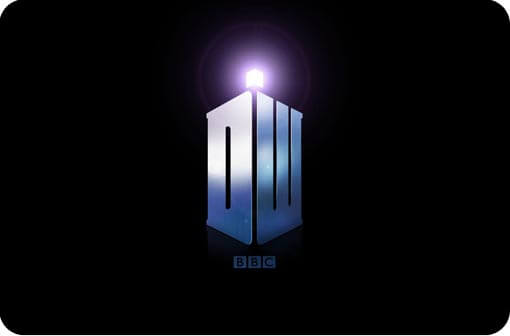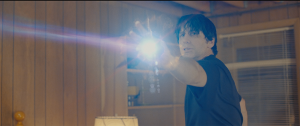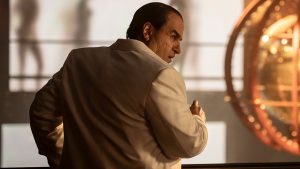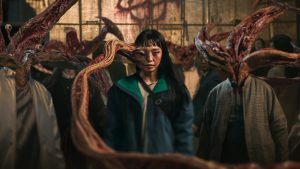
As Easter rapidly approaches, the Doctor Who missing episodes saga continues to rumble on, with Philip Morris himself this week making a statement.
“Looking for missing episodes of Doctor Who plus many other shows is an important but tiny part of the work that T.I.E.A. does,” Morris said, in a statement issued via the Television International Archives Enterprises Ltd (TIEA for short; pronounced “tea-uh”) Facebook Page.
“If any programmes do still exist T.I.E.A. will endeavour to recover them safely as with The Web of Fear and The Enemy of the World,” the statement went on to say. “However, as much as people want specific programmes found, wishing them into existence or starting rumours will not magically return them.”
With the weight of rumours following last October’s announcement by the BBC of the two stories in question, it is perhaps the time to stop and consider the work that Philip Morris and TIEA are undertaking. And maybe it is also time to stop and consider that, even if The Enemy of the World and The Web of Fear are all the Doctor Who episodes that Morris’ search will uncover, that is a remarkable achievement in itself. It is the biggest recovery of missing Doctor Who episodes in over two decades of looking.
On the subject of the work that TIEA does, the Facebook statement also said, “The main aim of this organisation is to assist those archives whose own cultural heritage is under threat.” That is an important point to consider, because fans following the progress of this story over the last several months have concentrated their attentions almost entirely on one aspect of it, the search for missing Doctor Who. And while it might have been that search that inspired Morris to form TIEA in the first place, it is the work that TIEA does that has subsequently become his passion and his primary achievement.
There are two things to consider here: firstly, from the perspective of being a Doctor Who fan, without TIEA and the promises TIEA has made to the archives in question, Morris wouldn’t have been allowed to retrieve any previously lost episodes at all. He didn’t arrive in Africa several years ago to an open invitation to go wherever he wanted and retrieve whatever took his fancy. He had to work hard to build a company and a reputation that would allow him access to these places, and it is very much to his credit that he seems to put those archives’ needs first. It is an honourable approach to take, to make sure you fulfil the promises you have made before seeking to benefit from the rewards you have been granted in return.
But secondly, what we perhaps haven’t been able to understand is the sheer heartbreak Morris must have felt when walking into some of these facilities. It is all very well to think to ourselves, ‘Yes, but it’s the Doctor Who that is important.’ Not to the owners of these archives, who have had to watch for decades while the cultural heritage of their countries has gone to waste, and with neither the equipment nor the finances to be able to stop that decline.
Fortunately Philip Morris did arrive, and TIEA were able to get to work on the material, saving as much of it as they could for the posterity of the generations to come in the places where the work needed doing.
I can’t begin to imagine what kind of a state some of these places might have been in. And while I can’t help thinking to myself either – as a fan – ‘Yes, but what about the Doctor Who?’, what I do instead is try and imagine how I might feel if it was the BBC’s own archive that was in such a state of disrepair. What if it was our own cultural history that was going to ruin? It is when you consider that, that you can see the true importance of TIEA, and the job that Morris has embarked upon.
Every time our patience runs low, we should stop and consider how patient the people who were overseeing archives whose contents were decaying needed to be. And if, at the end of all this, there are still 97 episodes of Doctor Who missing, we should consider how much more than that the people who Morris is currently helping are missing. How much they would in the future be missing if he hadn’t arrived to help them in the first place.
Lest we should think it’s all about what Morris is doing to help the archives abroad, though, it is fortunate for us that he still has his eye on the ball.
“The destruction of a lot of TV heritage was a sad episode,” Phil told me this morning. “It’s TV history which we must value, and get every single tape or film or sound recording back while we can. The window is closing.”
So while we all wait and hope that Philip Morris can somehow recover more lost Doctor Who, and perhaps other things besides, we must also understand that TIEA is a company with responsibilities that its owner takes seriously. It is incumbent upon Morris to balance the needs of the countries within which he is working, with his own need – and ours too – as an archive television fan, to try and find as much of what was lost forty years ago as possible.
“It’s only about the shows and getting them back … for everyone.”

Photo by Philip Morris
Share your comments below or on Twitter @STARBURST_MAG
Find your local Starburst Magazine stockist HERE, or buy direct from us HERE. For our digital edition (available to read on your iOS, Android, Amazon, Windows 8, Samsung and/or Huawei device – all for just £1.99), visit MAGZTER DIGITAL NEWSSTAND.
CLICK COVER TO GET YOUR DIGITAL COPY
FROM AROUND THE WEB:








No comment yet, add your voice below!